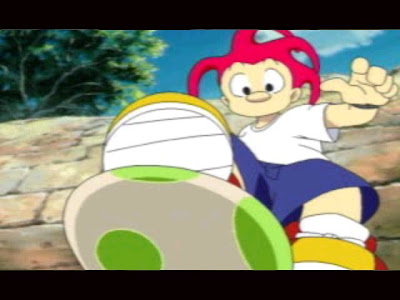
In this review I will explain about the mechanic unique to this game. The game starts at the world map, and you are located at World 1 Stage 1 (1-1), as shown below. The player expects something big and vast by seeing the world map.
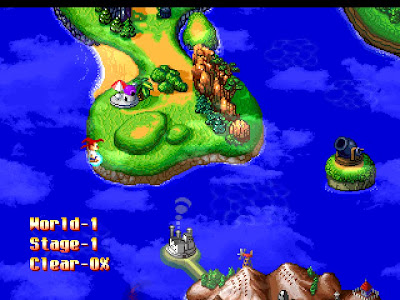
You can't go to other stage, so you enter World-1 Stage-1. Now it works like Super Mario Brothers or similar platform games - you stomp on enemies to destroy them, paying attention to certain enemies that can't be stomped on.
However, you will encounter eggs too. When you touch it, the egg will be kicked and waits for you to take it. When you take it (maximum 3), the eggs will follow you.
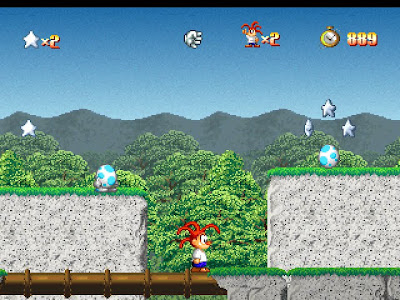
What is the purpose of those eggs? Well, you can switch from 3 modes:
1. Grab

In grab mode, the eggs will follow you in exactly the same movement as you. The eggs will not do anything to annoy you or to help you. This is used when you need to jump over platforms or tricky places and you don't want to lose your eggs.
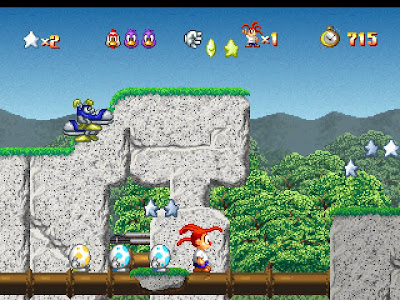
2. Release

In release mode, the eggs will run and jump around you automatically. They pick up stars, destroy enemies, very stupidly, and almost useless at all. But wait... that can be very useful later.
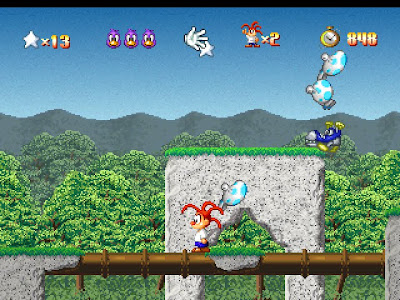
3. Point

Point mode can only be activated at certain places with a wooden sign. When point mode is activated, the eggs will turn into a shape to help you go to certain places. It can be a bridge, moving rails, ladders, or something else.
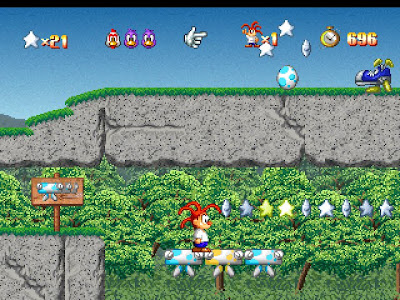
So, what can we do with whose eggs? Is that all? There are blue, yellow, green, red, and some other colored eggs, do they mean something? How about the stars? At the end of a level, the stars you gathered will come to a use, see the shot below:
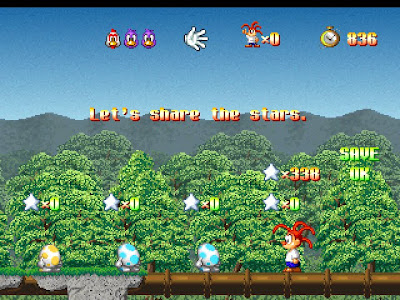
You decide to distribute the stars among you and your eggs. When you feed a blue egg with 100 stars, it changes to a baby penguin! When you feed 100 stars to a yellow egg, you get a baby chicken. Spoiler: you can feed thousands of stars and each colored egg will become some magnificent creatures.
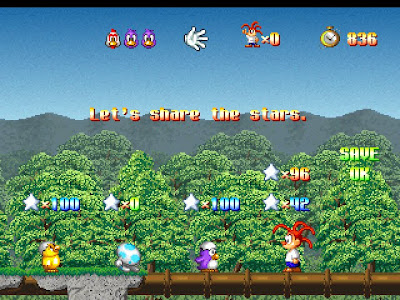
When your eggs have hatched, they become much more useful. The penguin collects stars, stomps enemies and is the simplest. The chicken flies slowly and stomp on enemies. The turtle (green) becomes a shell and only stays there, but you can kick it to destroy enemies. And so on.
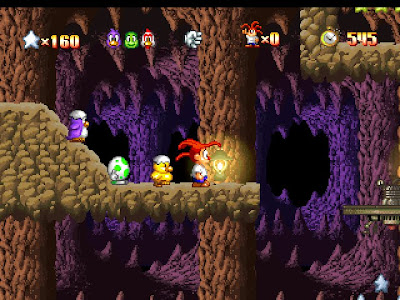 When you release your buddies (eggs or creatures), you are vulnerable to enemies. Once you are attacked, you die and need to restart the level. But when you grab them, when you are attacked, you don't die, but automatically release your buddies, at this moment you are vulnerable again. You can tap the button to quickly switch to grab mode again to avoid losing your buddies.
When you release your buddies (eggs or creatures), you are vulnerable to enemies. Once you are attacked, you die and need to restart the level. But when you grab them, when you are attacked, you don't die, but automatically release your buddies, at this moment you are vulnerable again. You can tap the button to quickly switch to grab mode again to avoid losing your buddies.In release mode, the buddies can also help you to solve certain puzzle. For example, you can let them to lift up a spring that you can jump over it to reach even higher places.
Another interesting part is that the game stages are not linear. When you finish certain stages, a red circle will be shown on the world map. That indicates that the stage has multiple exit points. One is usually the normal one, but by going through hidden paths you may discover other exits.
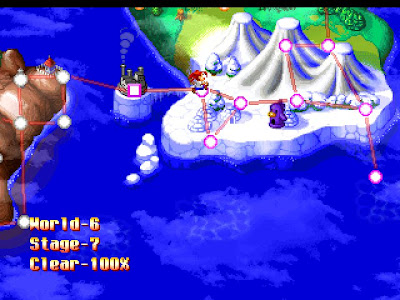
Overall, Hermie Hopperhead is a refreshing game with unique gameplay. The cutscenes are done in English, other than that there is almost no text to understand. Musics are repetitive although memorable. The best part lies on the level design that entice curiosity to find all the possible exits. This 1995-released game is rare, you might be able to find it in import stores.

No comments:
Post a Comment